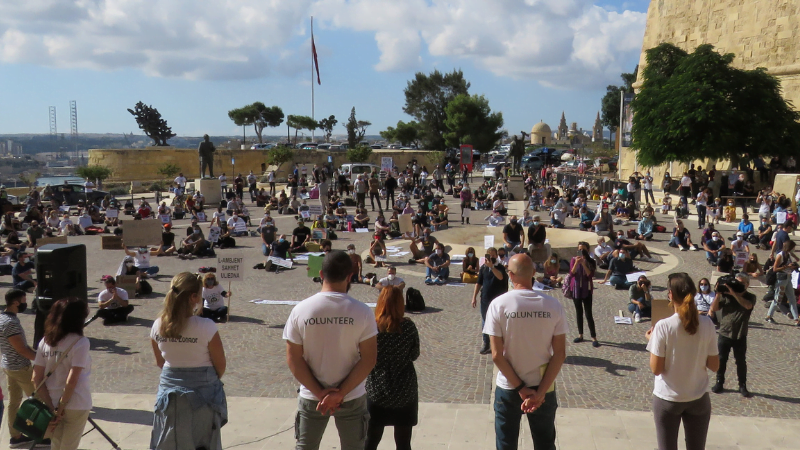As the 2022 general elections campaign is in full swing, political parties continue to roll out electoral pledges. And although the Labour Party in government has still not published its electoral programme, associations, unions and non-governmental organisations continue voicing their demands to affect real change within their respective sectors.
The Shift has been looking at the proposals put forward by the representatives of different sectors – from recommendations linked with migration and the rule of law, to suggestions about how to improve teachers’ rights and the Malta police force. This week, The Shift takes a look at more proposals put forward by other non-governmental organisations in recent days.
Environmental NGOs present united front ‘in view of rampant degradation’
Six prominent local environmental NGOs have joined forces and put together a list of nine demands to give to all parties and candidates running for election. The demands, they said, were put together “in view of the rampant degradation of our natural and built environment”.
The proposals put forward by the organisations include entrenching environmental protection, guardianship and the environmental rights of future generations into the Maltese Constitution and prioritising the climate crisis as the “greatest threat to humankind and the planet that requires bold and immediate actions across all levels of government and society”.
They also include prioritising public and active transport modes, reforming the Planning Authority planning board to ensure political independence, to recognise Malta’s surrounding sea as its largest habitat, ensuring agricultural land remains in the hands of farmers who are not evicted from their land, and tackling food and packaging waste, among others.
The organisations voicing these demands are BirdLife Malta, Din l-Art Ħelwa, Flimkien Għal Ambjent Aħjar, Friends of the Earth Malta, Nature Trust-FEE Malta and Ramblers Association of Malta. Additionally, Extinction Rebellion Malta, Għawdix, Moviment Graffitti, Rota, The ‘Grow 10 Trees’ Project, Wirt Għawdex, Żminijietna – Voice of the Left also endorsed the demands.
Malta Employer’s Association – ‘taking stock of Malta’s social, economic and moral direction’
The MEA’s strong-worded memorandum includes over 170 recommendations focusing on a wide array of socio-economic matters in a thorough manner; covering direct orders, political party financing, the natural and built environment, the pitfalls of populism, solar farms, the Gozo tunnel, remote working and vulnerable groups, among others.
The proposals push for the improvement of numerous issues that the country is currently facing, such as the strengthening of governance systems to restore Malta’s reputation in light of the FATF greylisting, the economic significance of ensuring AirMalta’s survival, a rethinking of the education system to minimise early school leaving and environmentally friendly strategies that safeguard the natural environment – including better transparency in processing development permits.
The association also puts forward recommendations related to supporting small businesses and sustaining a competitive labour market through the generation of higher value-added economic activities.
“This is not just a time to cast a vote to decide on which political party will govern the country during the next five years. More fundamentally, what is required is to take stock of the social, economic and moral direction this country is taking,” the memorandum states.
Film industry – fostering the development and survival of the indigenous film sector
The 10 recommendations by the Malta Producers’ Association (MPA) and the Malta Entertainment Industry and Arts Association (MEIA) push for constructive changes within Malta’s audio-visual industries with the goal of encouraging the creation of local film and long-form productions.
The proposals highlight the need to “immediately” amend the Malta Film Commission Act to ensure that the industry has meaningful and consultative input in the formulation of strategy for the sector, by creating a permanent working group composed of both government and industry stakeholders.
The associations also recommend streamlining government entities related to the cultural and creative sector under one ministry, making the public broadcasting services an active part of the international ecosystem, including film education in a “vastly improved arts and media literacy programme” in primary and secondary schools, and introducing a work regulation order to regularise employment conditions and set safety.
“Doing this would support the sustained growth of Maltese film talent and entrepreneurship and ultimately lead to foreign investment and international distribution,” the groups said.













